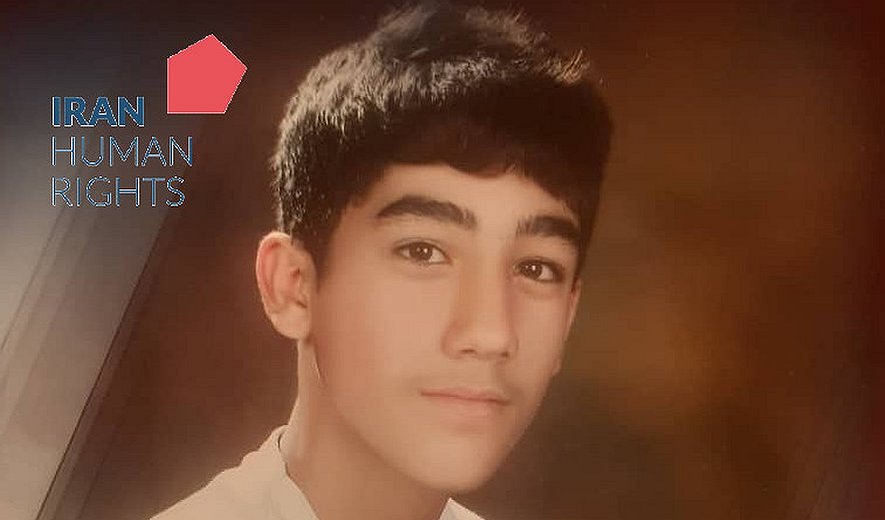Juvenile Offender Ali Arjangi at Risk of Execution

Iran Human Rights (IHR); January 25, 2021: Ali Arjangi who was sentenced to death for a murder he is accused of committing at 17, has until May to come up with the diya (blood money) amount set by the victim’s family.
According to Iran Human Rights, Ali Arjangi Fardghujeh-Biglou, a juvenile offender who was arrested three years ago, is currently on death row in the juvenile ward of Ardabil Central Prison.
Ali Arjangi told IHR: “The victim’s family have given me until 21 May 2021 and if I can’t come up with their requested diya amount, I will be executed.”
In an audio file, Ali says: “I am Ali Arjangi, son of Papour and being held at Ardebil Central Prison. I was born on 3 February 2000 and was arrested for the murder of Pouya Doayi, son of Hamidreza. This happened on 8 May 2017 and I was sentenced to qisas by hanging. My claimant (victim’s family), Mrs Salamat, has asked me for diya. She wants one billion Tomans from me but I don’t have the means to pay that kind of money. My mother, who is physically unwell herself and also has amputated legs, has to run around with her prosthetic legs to chase my case. My mother has sold our whole lives and come up with 200 million Tomans. I ask Iran Human Rights to help me and not let them execute me.”
Informed sources had previously told IHR that Ali and his lawyer had pleaded self-defence in his defence in court and believe that he is innocent. According to the sources, Ali was found to be mentally fully mature by the forensic medical examiner and sentenced to death by Branch Three of the Criminal Court, the child and youth court, which was upheld by the Supreme Court.
According to Article 91 of the new Islamic Penal Code, passed in 2013, “In the cases of offences punishable by hadd or qisas, if mature people under eighteen years do not realise the nature of the crime committed or its prohibition, or if there is uncertainty about their full mental development, according to their age, they shall be sentenced to the punishments prescribed in this chapter.” The note to the Article gives judges the power to determine the defendant's mental capacity: “The court may ask the opinion of forensic medicine or resort to any other method that it sees appropriate in order to establish the full mental development.”
Iran is one of the few countries in the world that still carries out the death penalty for juvenile offenders. The International Covenant on Civil and Political Rights which the Islamic Republic is a signatory to, prohibits the issuance and implementation of the death penalty for crimes committed by an individual below 18 years of age.
The Convention on the Rights of the Child, which the Islamic Republic is also a signatory to, explicitly states that “Neither capital punishment nor life imprisonment without possibility of release shall be imposed for offences committed by persons below eighteen years of age.”
Yet, according to data collected by IHR and international human rights organisations, the Islamic Republic is responsible for more than 70% of all executions of juvenile offenders in the last 30 years. IHR’s statistics also show that at least 63 juvenile offenders have been executed in Iran over the past 10 years, with at least six being executed in 2018 and four in 2019.
Given the security state and repression of civil society activists and the limited contact with prisoners, it is likely that the number of juvenile executions is much higher than recorded.

